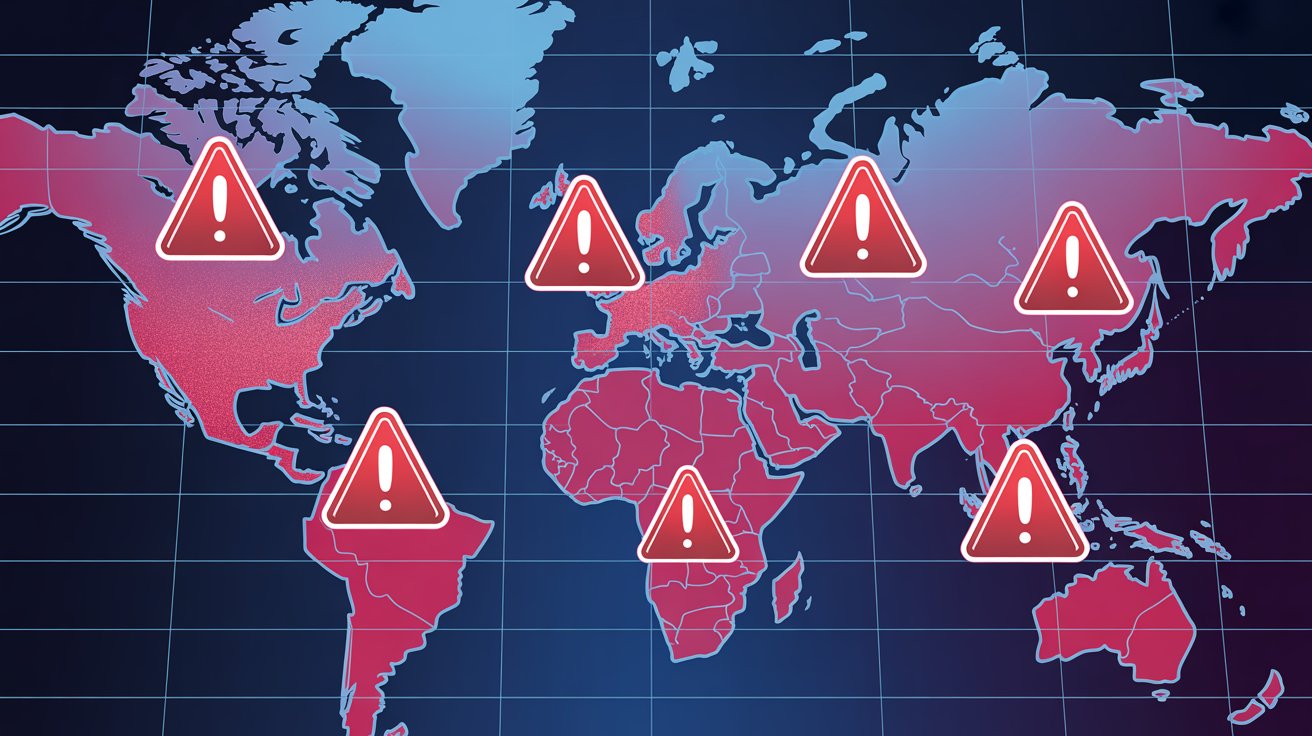
August 05, 2025
Geo-Targeted Scams: How Location Data Fuels Hyper-Local Fraud
In today’s data-driven internet, where your every click, swipe, and location ping feeds into an ever-expanding behavioral profile, a new type of scam has emerged: hyper-local fraud. These scams weaponize the very thing that personalizes your experience — your physical location — and twist it into a tool for deception.
This blog uncovers how location-based data, once used to enhance digital services, is now increasingly exploited to launch geographically tailored scams that feel eerily relevant, frighteningly urgent, and disturbingly effective.
📍 When Fraud Moves Next Door
Scammers no longer rely on casting a wide net. Thanks to real-time geo-targeting, they can tailor their tactics street by street, city by city — even down to a specific building or IP cluster. Here's how they do it:
- IP Geolocation & Mobile Tracking: Attackers can track your general location through your IP address or mobile GPS, then localize phishing emails or fake SMS alerts that reference nearby stores, delivery services, or government entities.
- Localized Bait Content: Hyper-local fraud uses names of familiar neighborhoods, local banks, or nearby utilities to make the communication appear more trustworthy.
- Time-Sensitive Triggers: Scams are often timed with local events (festivals, blackouts, emergencies), increasing believability and urgency.
🎣 Hyper-Personalized Phishing: Location Edition
Imagine getting a message like: “Your water supply in [your neighborhood] may be cut off. Click here to verify your ID.” Because it references your area directly, your instinct might push you to act immediately.
Such geo-specific phishing campaigns dramatically increase click-through rates. And worse — many users are completely unaware that their devices and apps constantly share geolocation data, often with vague permission settings and shadowy data brokers in the loop.
🧠 Cognitive Bias and Contextual Relevance
Scams are more likely to succeed when they feel personalized. Geo-targeted scams exploit:
- Familiarity Bias: Trust increases when people recognize names or places.
- Fear of Missing Out: Local emergencies or offers make people act quickly without verifying.
- Authority Heuristics: Messages claiming to be from nearby institutions (e.g., schools, city offices) often bypass skepticism.
🔍 Where Are They Getting Your Location?
Location data comes from:
- Mobile apps (often those with unnecessary permissions)
- Public Wi-Fi networks
- Browser fingerprinting
- Review platforms or social posts with geotags
- Purchased datasets from shadow data brokers
These sources form a real-time behavioral map, enabling criminals to build dynamic scam profiles that follow you — across devices and platforms.
🛡️ Defensive Design: How Platforms Should Respond
If location-based fraud is becoming normalized, it’s time for platforms to raise the bar on trust and safety. Here’s how:
- Transparent Geolocation Warnings: Alert users when their location is being tracked, with simple opt-outs.
- Consent-Driven Defaults: Make geolocation opt-in rather than opt-out, with granular settings.
- Anomaly Detection: Platforms can flag sudden location-based spam spikes or coordinated campaigns.
- Hyperlocal Threat Reporting: Let users report scams with context about where and when they occurred.
🔒 What Users Can Do
- Review App Permissions: Revoke unnecessary location access.
- Use VPNs to mask your IP and location.
- Disable Location Sharing on browsers, social media, and reviews unless essential.
- Check URLs Carefully, even when they look familiar.
- Stay Skeptical of time-sensitive, location-specific claims.
🌍 Why This Matters
Hyper-local scams aren’t just about tech — they’re about trust. When a fake message feels like it came from your street corner, the emotional manipulation is magnified. As location becomes a new axis for fraud, the burden is on both platforms and users to fight back — through smarter design, stronger privacy norms, and collective vigilance.
✅ The Future of Geo-Safe Experiences
The promise of contextual computing — apps that know where you are and respond accordingly — doesn’t have to become a liability. By treating location data as sacred, platforms can build proximity-aware systems that respect privacy and empower local communities without exposing them to danger.
This is more than just a cybersecurity concern — it’s a human dignity issue. Because where you are shouldn’t determine how you’re scammed.
Stay alert, stay anonymous — and demand platforms that treat your location like your identity: private, personal, and protected.